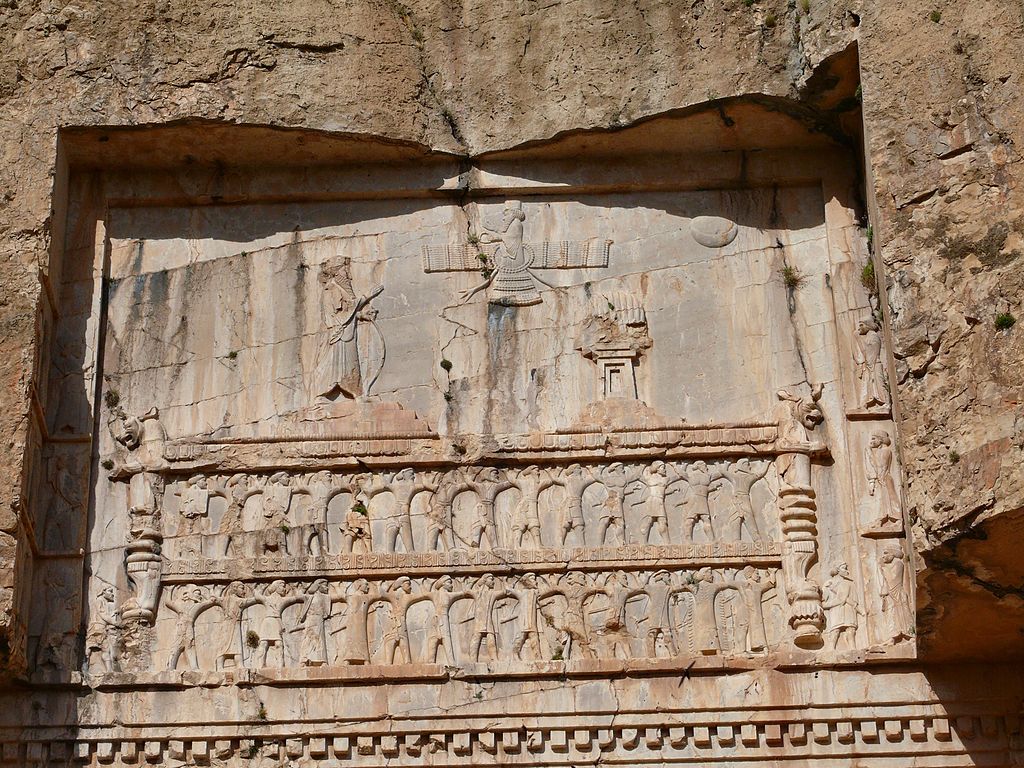
Part 1: Introduction | Part 2: We’ll See Who’s Boss | Part 3: Selfish Aims | Part 4: The King Gets What He Wants | Part 5: A Roll of the Dice | Part 6: The Tease | Part 7: Any Old Tablet | Part 8: Mental Explosion | Part 9: What Goes Around
With Haman out of the picture, we all know the rest of the story. There’s still the problem of the unalterable date for the extermination of the Jews. Xerxes promotes Mordecai to Haman’s place (Es 8.2) and assigns him to solve the problem (Es 8.8). Mordecai’s solution is both simple and just: authorize the Jews to use deadly force if necessary to defend themselves (Es 8.11). With that decree, the earlier one largely loses its force, since government sanction of murder kind of loses its appeal if you’re not protected from the consequences.
There are apparently a good number who don’t use discretion on the matter, and they face the consequences of their actions. And the long-range consequence is that today the Jews have a holiday, Purim (“lots”), so-called for the casting of lots by which Haman determined on what day the genocide of the Jews would occur.
This is the story in broad strokes. But there’s something missing.
We’ve seen an awful lot of coincidences in this story.
- Mordecai hears of the assassination plot.
- One night the king can’t sleep.
- His servant picks a random clay tablet from the archives.
- Haman is standing outside as the tablet is read.
- Haman assumes the king’s question is about him.
- Haman doesn’t know Esther’s ethnicity.
- The king completely misconstrues Haman’s actions toward Esther.
Are these all just coincidences? Are the Jews the luckiest people ever?
That’s just not reasonable.
It really seems as though someone is directing the progress of this plot. There’s intelligence behind it.
Whose intelligence? Esther’s? Mordecai’s?
That’s ridiculous. Esther couldn’t have predicted that she would be queen, and neither of them could have directed the servant to choose that particular tablet from the archives, or could have misdirected the king to interpret Haman’s motives completely inaccurately.
No, this intelligence is bigger than either of them, or both of them put together.
This is a divine providence.
But—and I don’t know if you’ve noticed this—there’s no God in this book. That is, he’s never mentioned.
Mordecai gets close when he tells Esther that she may have come to the kingdom for such a time as this (Es 4.14), but that’s an implication, not a specification.
God’s not mentioned. Anywhere.
But if you don’t see him in this story, you’re not paying attention.
And that means that this story has significance even for people who don’t celebrate Purim.
We all face difficulties of various kinds, even threats. And when we do, we want a visible—and powerful, and loud—Deliverer. We want intervention. We want action. We want a beatdown.
But God doesn’t need to do all that. He can deliver us in any way he chooses, and these days those ways don’t include voices from heaven or angelic armies. Sometimes he just keeps somebody awake. Sometimes he just lets somebody overhear something. Sometimes somebody just picks out exactly the right random thing.
Even when God is silent, he is there, and he is at work, including caring for his people.
He’s the real King.
Photo credit: Xerxes tomb at Naqsh-e Rostam (4615488322) – Tomb of Xerxes I – Wikipedia
